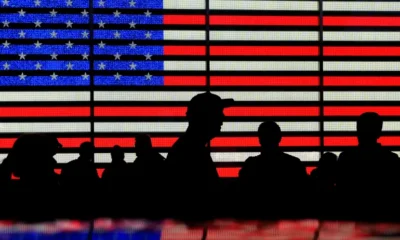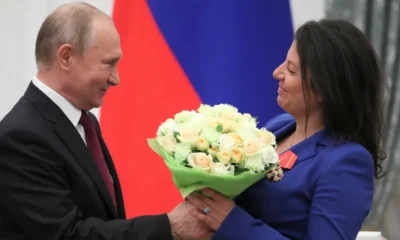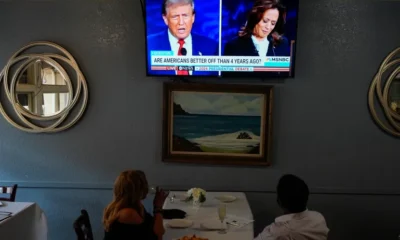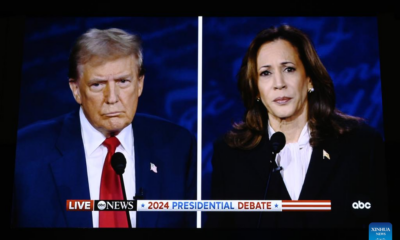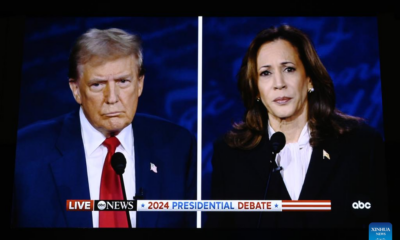Just two months after President Joe Biden dropped out of the race for a second term and anointed Vice President Kamala Harris as his heir apparent, the presidential election now looks like a tight race, with Harris eking out a small lead in opinion polls. But as Donald Trump showed in 2016, when America’s political class, pundits and polls said he could not win, he might still stage a comeback.
Before Biden’s move to end his campaign, it was looking like Trump, 78, who had vowed to shake up U.S. institutions and global security alliances, might have decisively beat the increasingly frail 81-year-old in November.
Harris, 59, who received the official Democratic Party nomination last month, has energized the campaign, especially among younger voters, women and some swing voters, increasing her support in the seven key states that will determine the occupant of the White House. The former senator, like Biden, is expected to continue reassuring allies and democracies of Washington’s support. Her running mate, Minnesota Governor Tim Walz, also made a name for himself in Congress as a critic of China’s human rights abuses — notwithstanding Trump’s rants that a Harris administration would mean communism.
Many leaders in Europe and Asia are likely breathing a bit of a sigh of relief that the election is not going to be the potential rout for the Democrats should Biden have stayed on. Trump might have not only gained the presidency but also both houses of Congress, including the Senate, which is crucial because of its power to approve appointees, such as Cabinet secretaries, including at the Pentagon and State Department, and other top officials, and treaties.

File photo shows U.S. journalist James Simms. (Kyodo)
For the world, still dealing with the impacts of the first major land war in Europe since World War II and an increasingly bellicose China, the renewed prospect of the mercurial and at times dictator-friendly Trump have forced Europe and Northeast Asia to reevaluate their reliance on U.S. security assurances and it maintaining the global trade order.
The twice-impeached Trump, who was also found guilty on felony charges in a New York state court, gave them plenty to fear. Think inflationary high tariffs, deals with dictators undercutting allies and democracies, like Taiwan and Ukraine, threats to pull out of alliances, such as NATO, and reducing or withdrawing troops from Japan and South Korea.
Trump had some good instincts regarding China, which he accused of gaming the geopolitical order in a mercantilist zero-sum game and bullying in territorial disputes in East Asia. He also accused allies when it came to their low defense spending. And while his policy implementation prowess had the deftness of a five-year-old, many Western allies and Japan have come around to his thinking on China and defense outlays, such as moving to 2 percent of GDP in NATO and Japan. (The 2022 Russian invasion of Ukraine, after Trump left office, was another factor.)
That, however, has also come at a high cost. Trump’s desultory policy ramblings have renewed discussion in European and Northeast Asian capitals of acquiring nuclear weapons. In South Korea, for example, there is increasing support for such moves. Successive U.S. administrations, with varying degrees of success, have strongly fought to prevent allies and others from getting their own atomic arsenals during the Cold War and after.
Remember that Japan, despite the horrific legacy of Hiroshima and Nagasaki, has had a policy to keep the nuclear option virtually open by maintaining advanced levels of missile and nuclear technology, even after ratifying the Nuclear Non-Proliferation Treaty in 1976.
Tokyo has all the makings of a nuclear weapons state with satellite launch rockets, uranium enrichment, nuclear fuel reprocessing and an over 40-ton plutonium stockpile. South Korea, under its military dictatorship in the 1970s, also had secret development plans for such weapons.
If these two Northeast Asian powers did make such moves on their own, Taiwan, and others like Saudi Arabia, likely would not be far behind.
Unfortunately, what is clear is that after nearly a decade of Trump that the demons he unleashed, whether on nuclear proliferation, inciting division or destroying political norms, may not return to the status quo ante, regardless of whether he is defeated in November. But a win would only worsen these trends.
(James Simms is a Forbes contributor, freelance reporter, and television and radio commentator in Tokyo and is a former Wall Street Journal columnist and former Scripps Journalism Fellow at the University of Colorado.)

 The Washington Post8 months ago
The Washington Post8 months ago
 CNN8 months ago
CNN8 months ago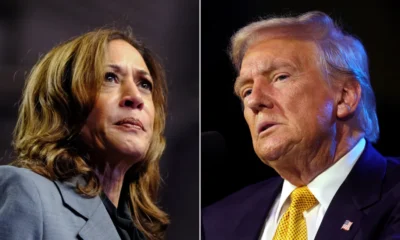
 CNN7 months ago
CNN7 months ago
 Kamala Harris8 months ago
Kamala Harris8 months ago
 CNN8 months ago
CNN8 months ago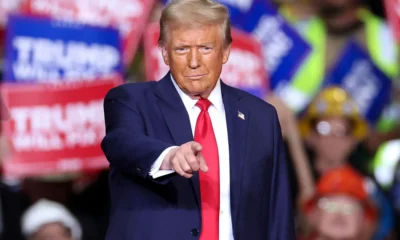
 CNN6 months ago
CNN6 months ago



